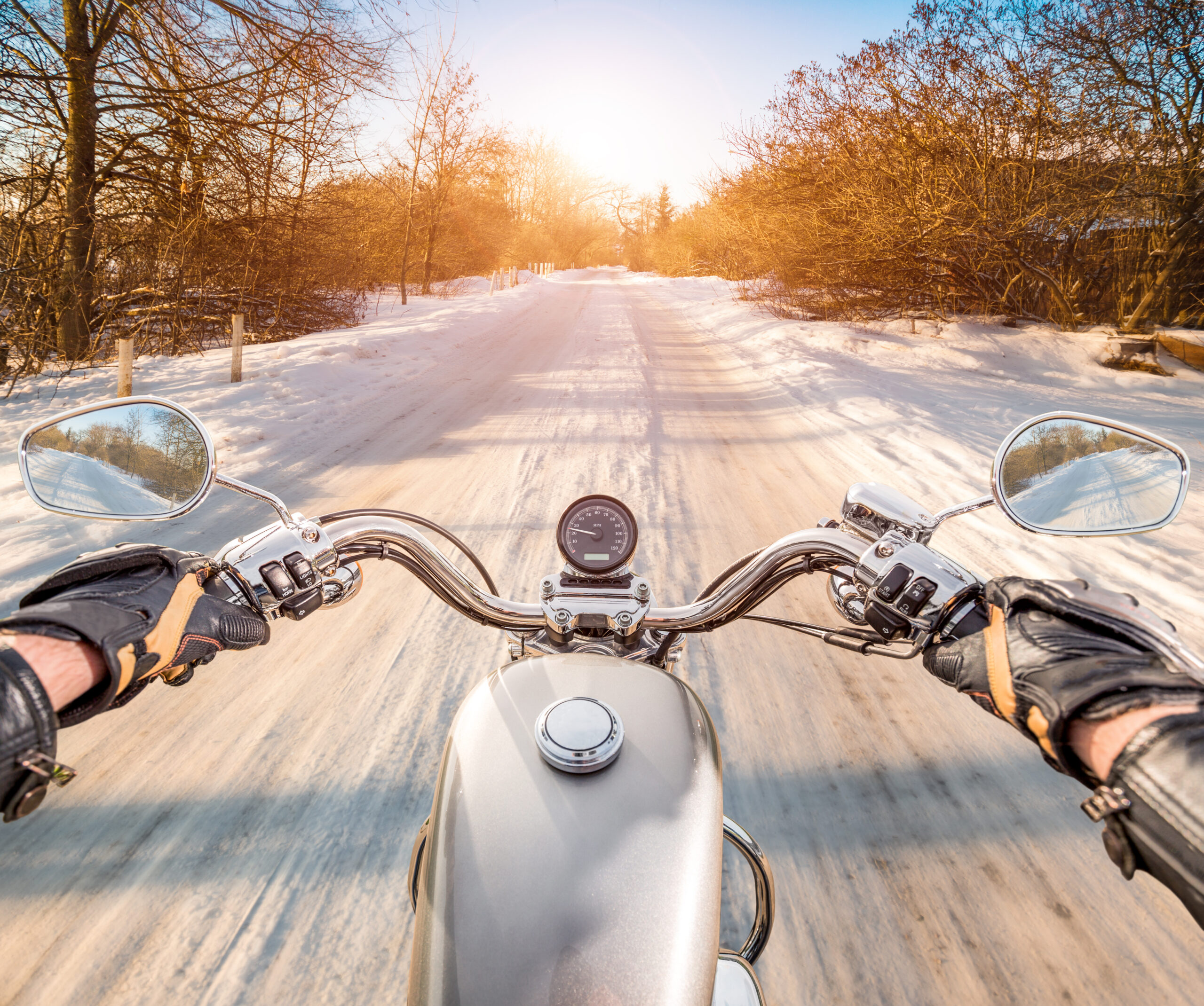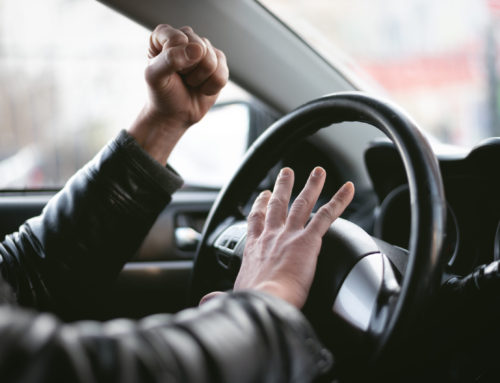It’s rare to see motorcyclists riding when there’s snow on the ground – but that doesn’t necessarily mean you can’t take the bike out in the winter. There are fewer motorcycle accidents during the winter months due to the lack of motorcycles on the road, however, the risk of an accident for the few bikers who do ride in inclement weather is high.
An estimated 75% of all motorcycle accidents involve other vehicles including cars and trucks, and according to the Department of Transportation, about 1.2 million car accidents are caused by poor weather annually.
For the motorcyclists who plan on riding this winter, follow these safety tips on the road to reduce the risk of getting into a collision and suffering personal injuries.
Gear Up
When getting ready to hit the road, it’s important to wear the proper gear to minimize injuries in case of an accident, and even to help prevent other personal injuries.
- When you’re behind the wheel of a car or truck and it gets too cold, you can simply crank up the heat. Motorcyclists don’t have that option, which is why it’s vital to wear gloves and warm layers to prevent frostbite or hypothermia.
- According to research conducted by the CDC, wearing a helmet can reduce the chances of a traumatic head injury by 69%. For added safety, wear a helmet that has full face protection to guard you from harsh winds.
- Riding boots designed for winter weather help prevent foot and ankle injuries and to maintain traction.
Use Winter Tires
That’s right, winter tires aren’t just for cars and trucks, but for motorcycles too. Ice, snow, frost, and even rain can make it more challenging to maintain control of the bike. Having winter tires on your vehicle improves braking distance, traction, and handling performance.
All-season tires are technically useable during all seasons, but they don’t provide the same level of safety as winter tires in snow and ice.
It’s also important to check your tire pressure (PSI) before every ride. To check your PSI, follow these steps:
- Park on a level surface and lower the kick stand.
- Take the cap off of the tire’s valve stem.
- Firmly push the tip of your tire pressure gauge onto the valve stem.
- Look at the PSI number located on the side of the tire, and compare it to the PSI reading from the gauge.
- Add air if the reading is below the PSI number on your tire.
Adjust Your Driving
Like all vehicle drivers, it’s important to adapt your driving habits to the weather in order to avoid a motorcycle accident and any subsequent personal injuries.
- Speeding is always dangerous, but it’s especially risky for motorcyclists during the winter months. Take it slow.
- Do not ride when the temperature is below 32°F, which is below freezing.
- Increase your following distance when behind other vehicles.
- Because winter weather can reduce visibility, ehr on the side of caution by assuming other drivers can’t see you.
- Warm up your tires before riding to increase your traction. You can do this in a few ways, one of which is to use a tire warmer.
- If the weather worsens mid-ride, slowly and calmly pull over at the nearest spot that has shelter.
If You Get in an Accident…
It can be difficult not to panic after getting into a motorcycle accident, especially in frigid weather. If you do find yourself in this position, stay calm and follow these steps:
- If possible to do safely, move yourself and your motorcycle out of the road.
- Call 911 to report the accident and get immediate medical attention if necessary. Even if the collision is minor, having a police report on record can be useful evidence if a personal injury is discovered after the collision.
- Obtain contact and insurance information from the other driver, and take photos of the scene of the accident and your injuries.
- Contact your personal injury lawyer as soon as possible so you can pursue the compensation you deserve. Do not admit fault or sign anything accepting blame without speaking to your attorney first.
- If not already done by paramedics, seek medical attention right away, even if you “feel fine.”
If you’ve been injured in an accident with another driver, contact us today to schedule your initial consultation where you will receive free legal advice from a quality Kansas City attorney near you.







